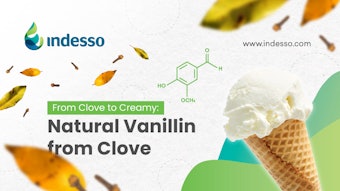The Panel on Food Contact Materials, Enzymes, Flavourings and Processing Aids (CEF) of the European Food Safety Authority (EFSA) has determined that based on the presently available data, some concern remains for the genotoxic potential of p-mentha-1,8-dien-7-al.
The flavor industry has provided additional genotoxicity data for p-mentha-1,8-dien-7-al [FL-no: 05.117].
In order to clarify the genotoxic potential of this substance, the panel considered that further in vivo testing should be performed. To address this, the panel said an in vivo Comet assay, considering the first site of contact (for example, stomach or duodenum) and liver, should be carried out according to the Scientific Report of EFSA on Minimum Criteria for the acceptance of in vivo alkaline Comet Assay Reports.
The study was a follow up of Flavoring Group Evaluation 208, which evaluated genotoxicity data on representatives for 10 alicyclic aldehydes with the α,β-unsaturation in ring / side-chain and precursors from chemical subgroup 2.2 of Flavoring Group Evaluation 19. The α,β-unsaturated aldehyde structure, which is a structural alerts for genotoxicity and the data on genotoxicity previously available for these 10 substances, did not rule out the concern for genotoxicity.
The panel identified one flavoring substance, p-mentha-1,8-dien-7-al [FL-no: 05.117], among the 10 substances in the present FGE.19 subgroup 2.2, for which appropriate genotoxicity data could be used for reading across to the other substances in the subgroup. Therefore, genotoxicity data have been requested for p-mentha-1,8-dien-7-al [FL-no: 05.117] according to the test strategy worked out by the panel.
To view the complete report, click here:










